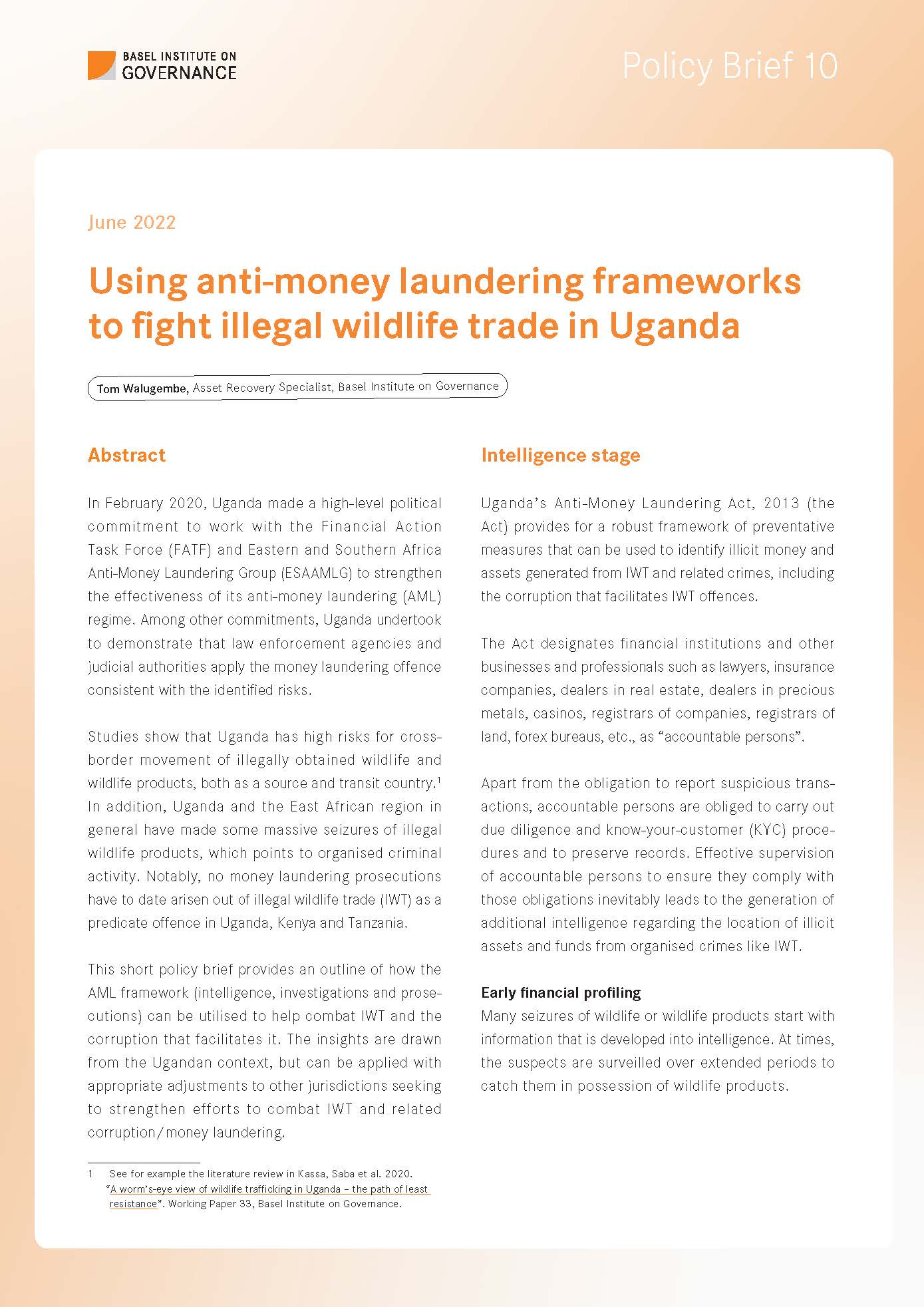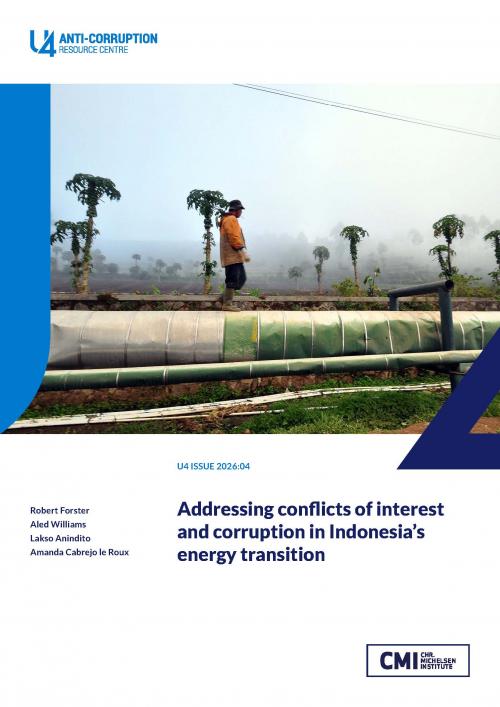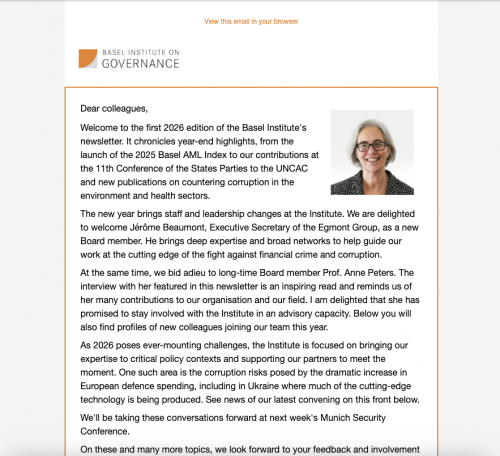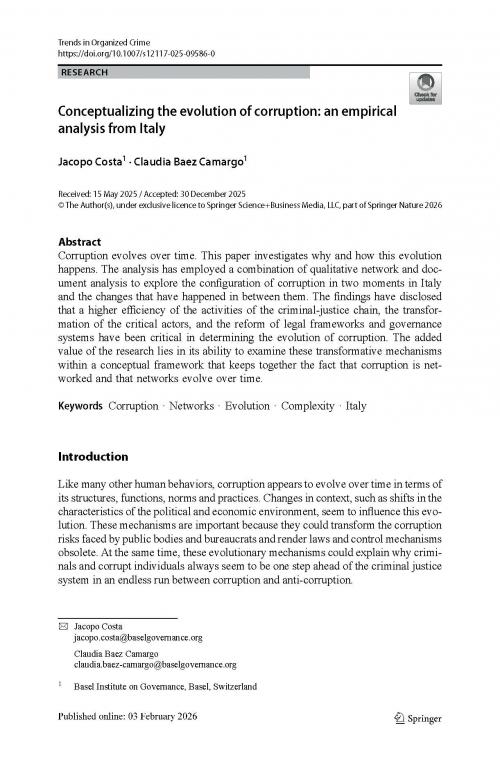Policy Brief 10: Using anti-money laundering frameworks to fight illegal wildlife trade in Uganda
In February 2020, Uganda made a high-level political commitment to work with the Financial Action Task Force (FATF) and Eastern and Southern Africa Anti-Money Laundering Group (ESAAMLG) to strengthen the effectiveness of its anti-money laundering (AML) regime. Among other commitments, Uganda undertook to demonstrate that law enforcement agencies and judicial authorities apply the money laundering offence consistent with the identified risks.
Studies show that Uganda has high risks for cross-border movement of illegally obtained wildlife and wildlife products, both as a source and transit country. In addition, Uganda and the East African region in general have made some massive seizures of illegal wildlife products, which points to organised criminal activity. Notably, no money laundering prosecutions have to date arisen out of illegal wildlife trade (IWT) as a predicate offence in Uganda, Kenya and Tanzania.
This short Policy Brief provides an outline of how the AML framework (intelligence, investigations and prosecutions) can be utilised to help combat IWT and the corruption that facilitates it. The insights are drawn from the Ugandan context, but can be applied with appropriate adjustments to other jurisdictions seeking to strengthen efforts to combat IWT and related corruption/money laundering.
About this Policy Brief
This publication is part of the Basel Institute on Governance Policy Brief series, ISSN 2624-9669, and supports the Basel Institute's Green Corruption programme.
It is licensed under a Creative Commons Attribution-NonCommercial-NoDerivatives 4.0 International License (CC BY-NC-ND 4.0). Suggested citation: Walugembe, Tom. 2022. “Using anti-money laundering frameworks to fight illegal wildlife trade.” Policy Brief 10, Basel Institute on Governance. Available at: baselgovernance.org/pb-10.
This Policy Brief was funded by UK Aid through the IWT Challenge Fund. The views expressed are those of the author and do not necessarily represent the views of the UK Government. This research is co-funded through a core donation to the Green Corruption programme from the Principality of Liechtenstein.
Links and other languages




